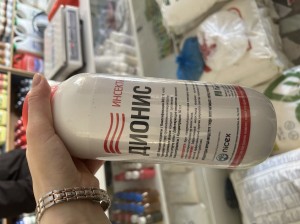Fipronil is a broad-spectrum insecticide that is effective against a wide variety of pests. It works by disrupting the insect’s nervous system, leading to paralysis and death. Here’s a breakdown of some of the common insects and pests that fipronil targets:
1. Does Fipronil Kill Fleas and Flea Eggs?
Yes, fipronil is effective against fleas and flea eggs. It kills adult fleas by affecting their nervous system, and because it stays active on the treated pet for an extended period, it can also target flea eggs and larvae, preventing them from maturing into adult fleas. This makes fipronil-based products a reliable choice for long-term flea control.
2. Does Fipronil Kill Ants, Termites, and Roaches?
Yes, fipronil can kill ants, termites, and roaches. It is commonly used in pest control products aimed at indoor and outdoor insect infestations. Fipronil targets the nervous systems of these insects, leading to their rapid demise. It’s often used in bait formulations for ants, termite treatments, and cockroach control, as it can effectively eliminate these pests both on contact and through ingestion.
- Ants: Fipronil is highly effective in controlling various ant species, including fire ants and carpenter ants.
- Termites: Fipronil is a key active ingredient in many termite control products, as it can kill termites on contact or through ingestion, thus preventing infestations in buildings.
- Roaches: Fipronil-based baits and sprays are effective at eliminating roaches, including German roaches and other species.
3. Does Fipronil Kill Bed Bugs?
Yes, fipronil can kill bed bugs, though it is not typically the first choice for bed bug control. Fipronil works by disrupting the bed bug’s nervous system, causing paralysis and death. While it may be effective, bed bugs can sometimes develop resistance to insecticides, so fipronil is often used in combination with other treatments, such as heat treatment or professional pest control methods, for more comprehensive control.
4. Does Fipronil Kill Spiders, Mosquitoes, and Wasps?
Fipronil can kill spiders, mosquitoes, and wasps, but it is more commonly used for controlling fleas, ants, and termites. Fipronil’s insecticidal properties extend to these pests as well, though they are not its primary targets. In most cases, fipronil-based products are not marketed specifically for spiders, mosquitoes, or wasps, but it can be effective in certain formulations designed for general pest control.
- Spiders: Fipronil can kill spiders if they come into contact with treated surfaces, but it is not the most targeted treatment for spider control.
- Mosquitoes: Fipronil is generally not used as a primary mosquito control agent, but it may impact mosquitoes that contact treated surfaces.
- Wasps: Fipronil may kill wasps if applied directly to the nest or the insects themselves, but specific wasp sprays are usually more effective.
5. Does Fipronil Kill Ticks and Mites?
Yes, fipronil is highly effective against ticks and mites. It is a key ingredient in many flea and tick treatments for pets, as it can kill ticks on contact and prevent them from attaching to animals. Fipronil is also effective against a variety of mites, including those that affect pets and crops. Its long-lasting effects make it ideal for preventing tick infestations and controlling mite populations.
Conclusion
Fipronil is a versatile and powerful insecticide that targets a wide range of pests, including:
- Fleas and flea eggs: Effective for long-term flea control.
- Ants, termites, and roaches: Used in baits and sprays to eliminate these pests.
- Bed bugs: Can kill bed bugs, but often used in combination with other treatments.
- Spiders, mosquitoes, and wasps: While not specifically designed for these pests, fipronil can kill them if they come into contact with treated surfaces.
- Ticks and mites: Highly effective in preventing and eliminating these pests.
Whether you are treating a pet for fleas or addressing a broader insect infestation, fipronil-based products can be a reliable solution for managing these common pests.
Post time: Dec-03-2024








